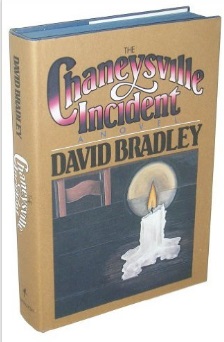It was only discovered because the word Chaneysville appears in the title.
The Chaneysville Incident, originally published in 1981, weaves a narrative spanning several generations that results from the death of a dozen slaves near this Pennsylvania village. Not far from the Mason-Dixon line, apparent frustration results in a tragic end for a band of escaped slaves in the antebellum era. The book focuses on the main character’s discovery of the story and reaction to it .
.
Chaneysville is of interest to me as it was founded by Thomas Chaney, Jr., in the early 19th century in southern Bedford County, Pennsylvania. It was not expected that the book would mention him or his family, but I was hoping it would perhaps, even though it is fictionalized, provide me with a little historical perspective. Chaney’s father lived to the early 1850s and had lived in the general area where the town was founded (Southampton Township) since the early 1800s. Most of Chaney’s siblings remained in the general area, except for at least three siblings who left for Ohio in the 1830s.
I really didn’t think about slaves crossing into this part of Pennsylvania via the Underground Railroad until I read the book. And while I have spent plenty of time looking at maps, it reminded me of just how close this locale is to the Mason-Dixon line. Sometimes we just need the obvious pointed out to us. The book was an interesting read and the incident itself is a painful reminder of another time in American history.
While reading fictionalized accounts of historical events can give us insight and perspective, it is always good to remind ourselves that fictionalized accounts are just that: fiction. That is not meant to devalue historical fiction in any way at all, but that readers should not use assumptions and conclusions made from historical fiction in their own research.
Getting Beyond the Incident
The incident and the book causes my online searches for Chaneysville to balloon with references to the incident. While I’m interested in the incident from a historical standpoint, there are times when I search for Chaneysville that I do not want to find pages mentioning or discussing the incident. It can also be frustrating to wade through reviews of the book, commentary on the book, downloadable terms papers about the book, crib notes on the book, etc. Learning more about the village, it’s founder, or potential relatives in the area is important to my research as well.
I used the advanced Google Search to search for Chaneysville without the word “incident.” This seemed to be a good approach, but it is still possible that I missed a reference that could have helped me just because the word “incident” was included. Another approach would be to remove the word “book” or “review” from my search results. Any search with a search term removed from the search runs the risk of not including something that could be helpful to my search.
A search for Chaneysville on Ebay resulted in more items than I expected–including several editions of this book.

No responses yet